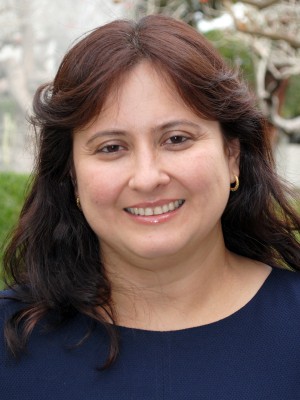 Suyapa Portillo Villeda ’96, assistant professor of Chicano/a-Latino/a Transnational Studies.
Suyapa Portillo Villeda ’96, assistant professor of Chicano/a-Latino/a Transnational Studies.
Claremont, Calif. (June 8, 2017)—Pitzer College Professor Suyapa Portillo Villeda ’96 has been awarded a Fulbright Scholar Research Fellowship to Honduras, where she will investigate narratives of migration from the point of view of Hondurans, focusing on the experiences of women and LGBTI youth.
Portillo, assistant professor of Chicano/a-Latino/a transnational studies, will combine archival research with contemporary oral histories to better understand factors driving migration, including the 2014 “migration crisis” when more than 60,000 immigrant youth, mostly from Central America, sought asylum in the US.
Too often, Portillo says, migration is examined as a crisis for the receiving country (in this case, the US), leaving deep-seated social, political and economic realities in the sending country (here, Honduras) little understood.
“My study seeks to answer questions about the driving forces of migration among young women and LGBTI communities, but, more importantly, it interrogates gender norms and patterns created over time that make society so unbearable that they are forced to migrate,” says Portillo. “My objective is to explore the history of gender and sexuality in the country as a foundation for discussing the economic and political conditions of migration.”
Portillo plans to examine how these factors play out in the North Coast of Honduras, which produces the most migrants of any region in the country. She researched this region for a book she is writing about the Great Banana Strike of 1954 and how it influenced the formation of the country’s labor movement and the nation as a whole.
“The region presents a great case study for examining migration and is emblematic of a contemporary sending global context,” she explains.
Portillo, who grew up in Honduras, said many narratives of migration focus on the men who strike out on their own to find work in a new country. She plans to explore how women’s and LGBTI youths’ reasons for migration differ from men’s and how Honduras is responding to migration pressures and young people’s needs and experiences.
The common explanation for the recent wave of migration from Central America’s Northern Triangle—Honduras, El Salvador and Guatemala—is violence. Honduras’s murder rate, one of the highest in the world, is often cited, but Portillo says it’s not that simple.
“Yes, there’s violence, but what’s underneath that violence?” Portillo asks.
She delved into the country’s turbulent political, economic and social history in a chapter in the anthology Rethinking Latin American Social Movements: Radical Action from Below, providing a historical context for the development of a grassroots coalition that formed after the 2009 coup d’etat.
Portillo earned her BA in Spanish and psychology at Pitzer College and her MA and PhD at Cornell University.
This academic year, Portillo was one of two Pitzer professors to receive a Fulbright fellowship: Daniel A. Segal, Jean Pitzer professor of anthropology and professor of history, was awarded a Fulbright to examine the entry of the Brazilian state into the northern Amazon.
The Fulbright Program, established in 1946, is one of the most prestigious scholarly awards in the US. Past Fulbright recipients include Nobel laureates, heads of states, Pulitzer Prize winners and MacArthur Fellows. Sponsored by the U.S. Department of State’s Bureau of Educational and Cultural Affairs, the Fulbright Program operates in more than 160 countries worldwide.